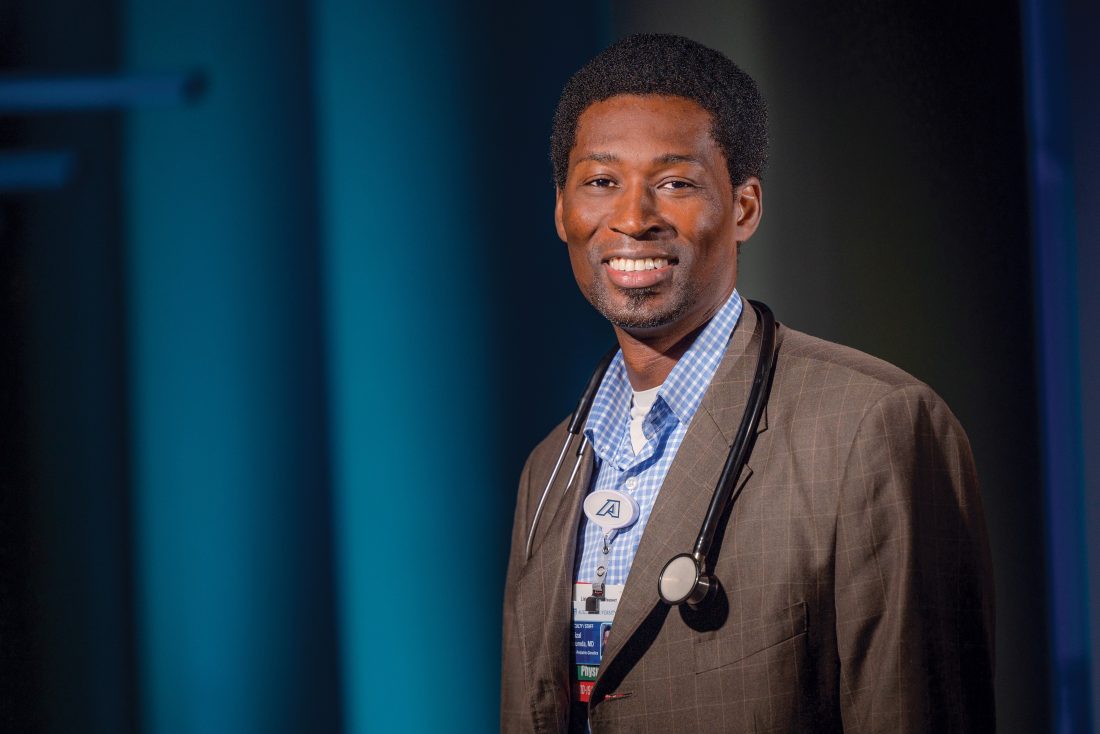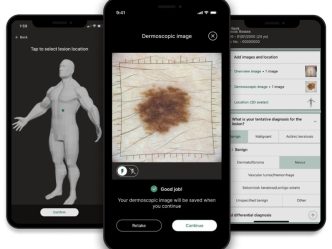Faizal Asumda, MD, who recently completed a clinical genetics and genomics residency at the Mayo Clinic in Rochester, Minnesota, has joined the faculty at the Medical College of Georgia and the Children’s Hospital of Georgia.
Geneticists, as the name implies, specialize in diagnosing and treating genetic disorders. They are in high demand with only approximately 1,240 medical geneticists in the United States in 2019, according to the U.S. Government Accountability Office.
“The Children’s Hospital of Georgia is the second-largest children’s hospital in Georgia and the only children’s hospital outside of Atlanta that can provide care for the sickest and most complex medical needs of children, which is only possible because we have physicians in all of the medical and surgical pediatric subspecialities,” explains Valera Hudson, MD, pediatrician-in-chief at CHOG and chair of the MCG Department of Pediatrics.
“Genetics impacts every disease and therefore every clinical service, so recruiting a geneticist was essential to providing the most comprehensive care for our patients.”
Asumda says his first exposure to the field genetics was during his first job after graduate school — he earned his master’s degree in public health in 2007 and another in cell and molecular biology from Florida State University in 2010. He worked at the University of Miami Institute for Human Genomics as a clinical research specialist investigating the genetics of Alzheimer’s, specifically in Black people.
“I had the opportunity to work with people who were world-renowned experts in genetics and was able to see the full breadth of the field, from seeing patients to figuring out the underlying genetic issues that led to their specific phenotype,” he says.
“I was able to be involved in every step, from getting a blood sample, to isolating the DNA to using whole genome sequencing. It piqued my interest, not just in genetics, but in research. I knew when I went to medical school that I was going to pursue a field that would allow me to pursue both my research interests and clinical interests. Genetics, for me, is a good blend of clinical and academic pursuits.”
Asumda’s research interests persisted throughout medical school at the University of Science, Arts and Technology, Montserrat, in the Caribbean, where he earned his medical degree in 2015, and through his clinical genetics and genomics residency at Mayo. It was at Mayo where his interests shifted to cancer, specifically the underlying genetics of and new treatment options for hereditary cancers, caused by mutations in certain genes. In a hereditary cancer syndrome, certain patterns of cancer may be seen within families, according to the National Cancer Institute.
He plans to continue those research pursuits at MCG and CHOG.
“I need research as an outlet for me,” he says. “When it came time to find a job, I was looking for a place that would support my clinical and research interests. Coming out of training without my own research program, I knew it wasn’t going to be easy to find an institution that was going to commit the resources to help me build that, but Dr. Hudson and MCG were willing. This is an environment where I feel like I will get the support I need.”
Asumda joined the faculty Aug. 1 and is seeing patients in CHOG’s neonatal and pediatric intensive care units. He plans to have a genetics clinic set up by the end of this month, with an eye toward hiring another geneticist next year. He also is working to recruit a second genetic counselor, genetic counselor’s assistant and a genetic/metabolic nutritionist.
“I am excited to rebuild a genetics program here at CHOG,” he says. “In Georgia, the only other place with a program like this is Emory, which treats mostly people from Atlanta. One of my biggest hopes is that we are able to serve those who have been underserved for far too long.”
 Augusta University
Augusta University




